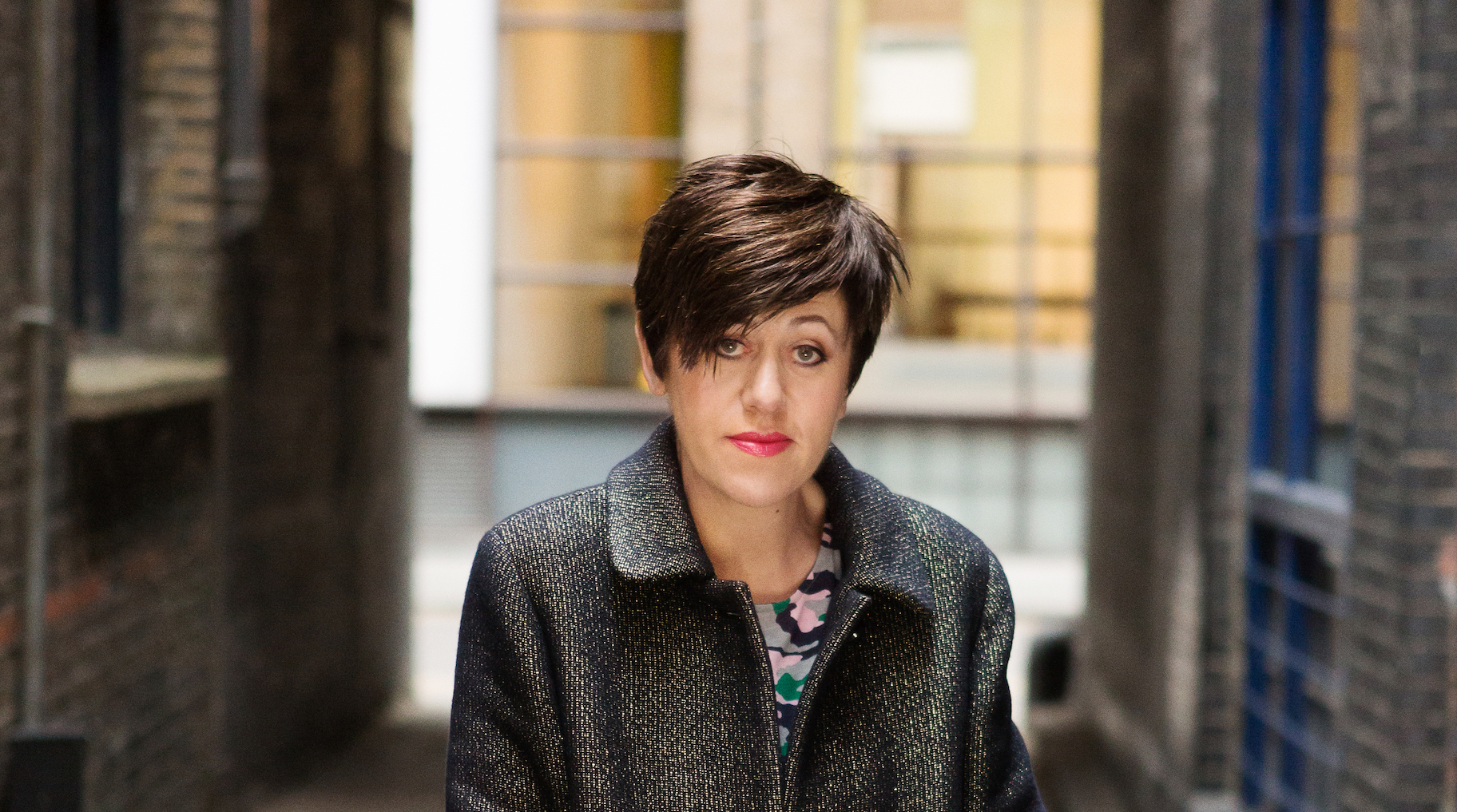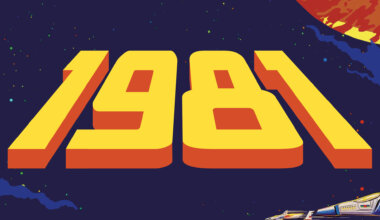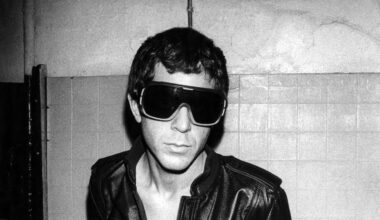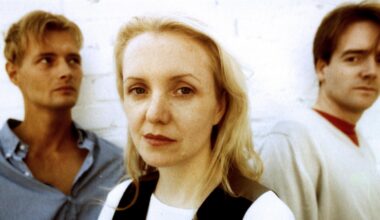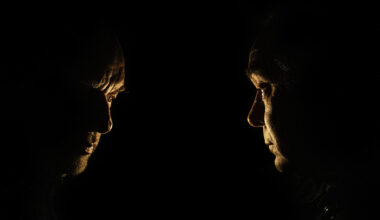With a new album awash with electronic goodness, Tracey Thorn talks production Licks, girl band Picks and her teenage kicks
“I am worried that you’re going to ask me some difficult questions,” professes Tracey Thorn before Electronic Sound has even turned its tape recorder on. We’re here, in a plush meeting room upstairs at a Ladbroke Grove music industry hub, to discuss her latest solo outing, ‘Record’, and she’s concerned it’ll turn into an interrogation on the minutiae of the plug-ins, programming software and analogue equipment used to produce the nine exquisite songs contained therein.
Obviously, Tracey Thorn has been involved in some of the key landmark moments in electronic music history, from Everything But The Girl’s massive international hit ‘Missing’ (so effectively reworked into a dancefloor smash by Todd Terry), and as co-writer and vocalist on Massive Attack’s poignant ‘Protection’. There’s also Everything But The Girl’s radical and original incorporation of drum ’n’ bass and electronica on their ‘Walking Wounded’ album.
Where ‘Record’ differs is that it’s the first solo project she’s done with a distinctly electronic feel. She is the first to admit she’s not particularly a techie person, in fact, she freely offers that she has “No programming or tech skills at all”.
In the creation of this long-player, that role is taken by collaborator Ewan Pearson, a remixer, producer and artist in his own right. Among his numerous aliases he’s perhaps best know as Maas and World Of Apples on Glasgow’s Soma imprint. Tracey has worked with Ewan on several albums, first when he was one of a handful of producers on her 2007 ‘Out Of The Woods’ album, having been introduced to his work by Ben Watt, her husband and long-term collaborator in the EBTG project, which is currently (but perhaps not permanently) on sabbatical.
“I worked with him along with two or three other people,” recalls Tracey, “but we got on really well. Like me, he’s someone who can inhabit both worlds. He can do the electronic stuff, but also he can produce more acoustic-based music and he’s a lover of songs as well. I’ve worked with Ewan quite a lot, but it’s mostly been acoustic recording with him. I did the Christmas record [her 2012 ‘Tinsel And Lights’ album), which is mostly guitar based, and the album before that, ‘Love And Its Opposite’, which was largely guitar and drums. There are a couple of programmed drum tracks on it as well.”
Having written and demoed all the songs for ‘Record’, she had one of those moments of revelation, realising it was time to use Ewan’s electronic skills.
“I got in touch with him and he said, ‘What kind of thing are we doing?’, probably thinking it was going to be guitar-y, but I said, ‘I’m thinking New Order and Pet Shop Boys and I’ve got this song that I want to do a Grace Jones ‘Compass Point’ groove on’. At that point he just lit up and thought, ‘This is what I do!’.”
While there are clear nods to some of the giants of 80s music here – the New Order-esque electric guitar joining in towards the end of ‘Queen’ for example, the significant nods to the Pet Shop Boys on ‘Dancefloor’ and even echoes of ABBA’s ‘The Visitors’ album (of which Ewan is apparently a massive fan), that’s only part of the story. The overriding feeling is of musical chemistry – that blend of Thorn’s songwriting, punky and angry at times, tender and vulnerable at others, with Pearson’s innovative and distinctive style of electronica.
It sounds like a very natural, and very democratic, combination. How does she think the partnership works?
“We have a really good shorthand,” she says, succinctly. “He knows what I mean.”
Neither of them is a big melodramatic character, Tracey explains, so the process was a pretty calm affair. A lot of time was spent in the attic of Ewan’s house in Walthamstow, working on sounds in his home studio.
“It was just sort of trial and error,” she says.
There were lengthy afternoons of picking synth lines, literally going through hundreds of sounds until Tracey heard the one she was looking for. If Ewan brings the technical skills to the table, Tracey sees her strength as decisiveness that can sometimes elude the most experienced producer, especially after they’ve spent a couple of days in search of the perfect drum sound or mix.
“I’m quite good at recognising the thing I know I want,” she says, “even if I don’t necessarily know how to do it. There’s no time pressure because you’re not in a studio and it’s not super expensive.”
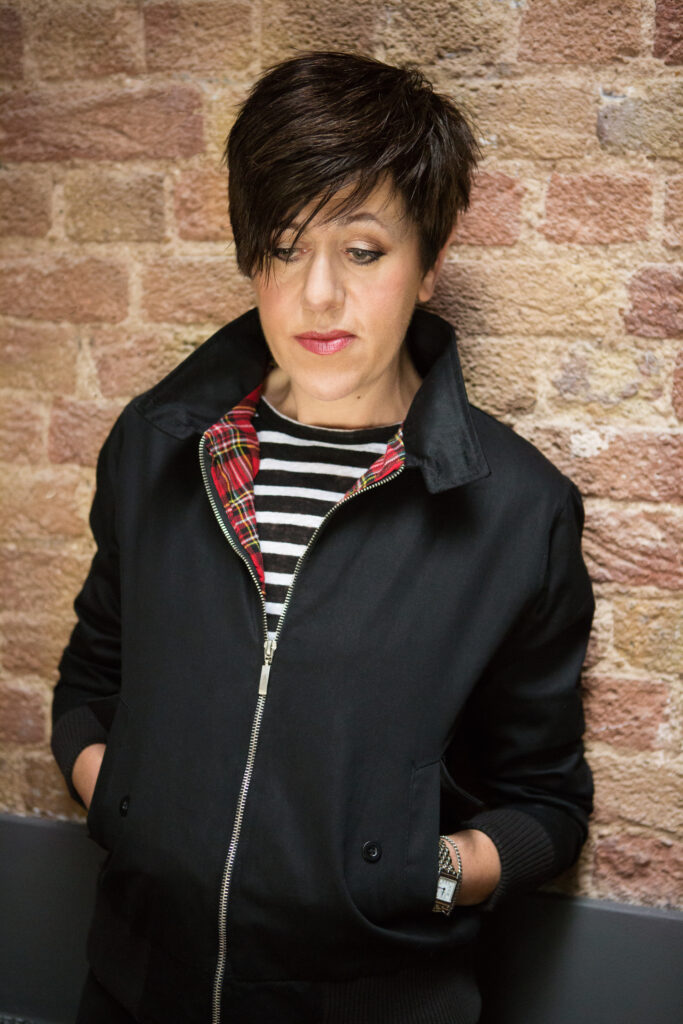
There were two or three songs Ewan felt needed live playing on them, and the album was finished with a succession of quick two-day sessions in a number of London studios, including RAK and The Strongroom. Most of the live playing features on the album’s undoubted centrepiece, a nine-minute track called ‘Sister’, which the remaining eight short-and-sharp tunes – all with one word titles – are built around. The recording also boasts the rhythm section of US indie heroes, Warpaint.
“I said, ‘Well, it’d be fantastic to get someone like Warpaint’,” recalls Tracey, “and Ewan said, ‘I know Stella’ [Mozgawa, the band’s drummer], so he was able to just phone her up.”
When Warpaint had a few spare days in the UK around their Glastonbury appearance last year, Stella ended up playing drums on a few tracks and their bassist Jenny Lee Lindberg played on ‘Queen’ and ‘Sister’, along with guitarist Jono Ma. Recording at London’s Strongroom, Tracey played the demo to set the tempo and give them the basic feel, but pretty much left them to their own devices once they’d struck up the groove, driven by Stella’s marching drumbeats.
“Originally the track was only four minutes long, but they got such an amazing groove going we just left them to it,” laughs Tracey. “I think we recorded about 11 minutes. It was brilliant just being in the studio while they did that.”
Tracey wrote the track after returning home from the Women’s March last year, having been reinvigorated after various depressing political events in 2017, not least the election of Donald Trump, and the finishing touch came in the shape of backing vocals from Corinne Bailey Rae.
“It’s meant to be positive,” she maintains; “I know there are some angry lines in there, but with hundreds of thousands of people on that march all feeling the same way, in cities all around the world too, there’s a very strong sense of solidarity and fighting back – feeling positive again.”
The alt-right gaining power in the US and the hard Brexiteers attempting to seize the reigns in the UK has brought out powerful counter-reactions, particularly in terms of women fighting for rights and equal pay in recent months. Tracey agrees that there are parallels to the time in the 1980s when Margaret Thatcher became a focal point for disaffected youth and pop became overtly political.
“It’s amazing; it feels like we’re in this big push-and-pull at the moment,” she says, “like the dark forces crushing down from above, but there’s a lot of push back going on too. Women have always been speaking out, but it feels like people are listening now and becoming a bit more aware.”
As you’d probably expect, there’s a political edge to many of the lyrics on ‘Record’, but they’re always handled from a unique storytelling angle. ‘Smoke’, for instance, sees Tracey following the Thorn family tree back more than 200 years to her relatives who left the village of Carleton Rode in Norfolk to move to Kentish Town. It ends up expressing her own anxieties about London becoming the playground of the super rich.
“It’s almost like an urban folk song,” she says, “a modern folk song. It’s got folky things about the tune, but then it’s got this droney electronic undercurrent.”
The personal and political merge equally effortlessly on Tracey’s joyous hymn to contraception, ‘Babies’.
“As a mother, I realise I loved my experience of having my kids precisely because I was able to have them exactly when I wanted to,” she explains. “That’s what women are talking about when they demand freedom of choice. I thought it’s something I hadn’t really heard a song about before. You can say anything in a song if you believe you can. It’s quite nice to broaden the range of subject matter that you can talk about in song; it does get a bit narrow.”
The album’s triumphant closing tune is ‘Dancefloor’, a suitably party-like celebration of throwing shapes and reaching for the lazers. Tracey uses the song to namecheck the dancefloor anthems of her formative years and specifically those that can still get her up and dancing now. Chic’s ‘Good Times’ and Bowie’s ‘Golden Years’ get special mentions, alongside ‘Shame’ by Evelyn “Champagne” King and ‘Let The Music Play’ by Shannon. They hark back to the early part of her youth spent in suburban discos, before punk hit, although she recalls even after the punk revolution you still needed things to get up and dance to – tracks like ‘Hit Me With Your Rhythm Stick’ by Ian Dury And The Blockheads and Blondie’s ‘Heart Of Glass’.
From the pogo-ing punks to the free party technoheads who fought the Criminal Justice Bill, each generation views the hedonism and release of dancing in a different way. Tracey points to the way EBTG’s ‘Missing’ became an anthem for the gay scene which had been ravaged by the AIDS crisis.
“A lot of gay men went out clubbing and heard ‘Missing’ at the tail end of that whole thing and I think for a lot of people that song became iconic of that sense of loss,” she says. “I could see that, even though it wasn’t written with that in mind.”
While ‘Record’ might, in terms of its construction and sonic palate, be somewhat of a new adventure for Tracey, at its heart are some familiar, recurring themes. An ear for a tune that will wrap itself around your ears and not let go, a simultaneous love of simple musical expression that’s able to relay complex human emotions, and above all, a desire to tell those stories that, until now, remain untold. The title ‘Record’ works on several levels: a record of living, as well as a slab of vinyl that life has been poured into. For Tracey, the slightly antiquated nature of the word (to some, anyway) is deliberate.
“It’s my generation’s term,” she laughs without a hint of apology. “I still find referring to a track rather than a single quite weird. ‘It’s the lead track from the album.’ No, it’s my single!”
‘Record’ is out on Unmade Road/Caroline International
